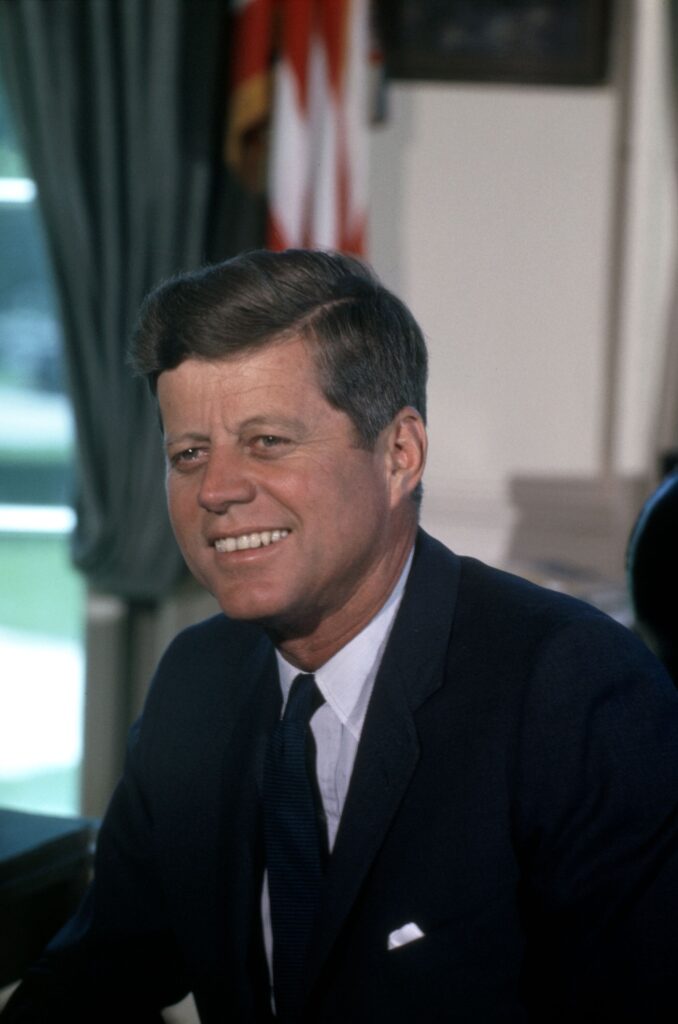
By Shadow Pine
On June 23, 2025, President Donald Trump announced a ceasefire between Israel and Iran, a bold move to cement his legacy as a global peacemaker while advancing his America First agenda. The announcement followed U.S. airstrikes on June 21 that crippled Iran’s nuclear capabilities, raising hopes for de-escalation in the Middle East. However, the ceasefire collapsed within hours as Israel resumed airstrikes on Iranian targets on June 24, threatening Trump’s diplomatic credibility.
Representative Marjorie Taylor Greene, a fierce Trump ally, swiftly reframed this setback, alleging sabotage by the Israeli lobby. Her provocative claims not only rallied Trump’s base but also coincided with the ceasefire’s stabilization, hinting at the possible truth behind her assassination accusations. As of June 26, 2025, the ceasefire holds, offering cautious optimism amid lingering tensions.
Greene’s accusation about Israel’s role in JFK’s assassination dovetails with broader claims about the influence of the Israel lobby on U.S. politics, a theme she has leveraged to critique current foreign policy. In June 2025, CNN reported on Israel’s unilateral strikes on Iran’s Fordow nuclear facility and Netanyahu’s urging of Trump to join a war against Iran, which Trump reportedly resisted by announcing a ceasefire (CNN, June 17, 2025).
These events suggest pressure from Israeli leadership and pro-Israel groups to push Trump toward a hawkish stance, a dynamic Greene may be exploiting to frame her narrative of Israel’s outsized influence. By linking JFK’s death to his nuclear objections and implying similar dangers today, Greene amplifies a view of the Israel lobby as a manipulative force.
Greene seized the moment of the ceasefire’s initial failure to shift blame from Trump to what she described as a powerful pro-Israel network. On June 24, during a heated exchange on X with Fox News host Mark Levin, a vocal advocate for military action against Iran, Greene posted a bombshell claim. She suggested that President John F. Kennedy’s 1963 assassination was linked to his opposition to Israel’s nuclear program, specifically his demands for inspections at the Dimona reactor and threats to cut U.S. aid.
Though speculative, the statement was strategically timed to align with Israel’s violation of the ceasefire, which had embarrassed Trump’s diplomatic efforts.
By invoking the Kennedy narrative, Greene implied that the same pro-Israel forces she alleged operated historically were now orchestrating the ceasefire’s collapse to maintain pressure on Iran and preserve Israel’s regional dominance. She portrayed the Israeli lobby, a network of political and financial actors, as viewing Trump’s peace initiative as a threat, particularly after U.S. actions had weakened Iran. This framing cast Trump as a visionary leader targeted for his pursuit of peace, resonating with his isolationist base, who are skeptical of U.S. involvement in Middle Eastern conflicts.
Remarkably, following Greene’s X post, the ceasefire began to hold. Initial violations, Israel claiming Iran launched missiles, Iran asserting Israel struck first by targeting a radar array near Tehran, had fueled chaos. Trump, frustrated, publicly rebuked both nations, using sharp language to criticize Israel’s actions. Yet, after Greene’s accusation, both sides signaled conditional compliance, each vowing to respect the truce if the other reciprocated.
As of June 26, 2025, the ceasefire remains intact, with Israel lifting wartime restrictions, reopening Ben Gurion Airport, and resuming normal activities, while Iran has partially reopened its airspace. No further violations have been reported, and global markets have responded positively, with oil prices dropping and stocks rising, reflecting confidence in the truce’s stability.
The timing of the ceasefire’s stabilization raises intriguing questions about Greene’s claims. Her suggestion of a historical assassination tied to Israeli interests appeared to pressure Israel into compliance, as if her accusation exposed a truth that prompted a recalibration of strategy. While no direct evidence links her post to Israel’s restraint, the coincidence fueled speculation among Trump’s supporters that Greene’s narrative struck a nerve, compelling the Israeli lobby to back off to avoid further scrutiny.
This perception weakened pro-war advocates within the Republican coalition, such as Senator Lindsey Graham, who pushed for aggressive action against Iran. Greene’s claims sowed doubt about the motives of hawkish voices, suggesting their calls for escalation might serve foreign agendas, aligning with the skepticism of voters prioritizing domestic concerns. This exposed fractures within the GOP, where Greene and allies like Steve Bannon championed non-interventionism against the party’s hawkish wing.
On June 25, Trump announced a 60-day plan for a new nuclear agreement with Iran, leveraging Greene’s narrative to portray himself as a resolute leader battling entrenched interests. Her claims shielded him from perceptions of failure, recasting him as a peacemaker targeted by powerful lobbies. The suggestion of possible Israeli assassination ties, while controversial, further undermined pro-war advocates, framing their push for conflict as potentially tied to external agendas. The ceasefire’s newfound stability strengthened Trump’s appeal among supporters wary of foreign influence, with many interpreting the truce’s success as validation of Greene’s accusations.
Greene’s strategic intervention transformed a diplomatic hurdle into a triumph for Trump’s vision of a less interventionist America. By framing the Israeli lobby as the saboteur and hinting at historical conspiracies, she not only bolstered Trump’s resolve but also reshaped the political landscape. The ceasefire’s stabilization post-X post by Green suggests her accusations may have carried weight, compelling a shift in behavior. As the focus shifts to upcoming nuclear talks, Trump’s diplomatic gamble, bolstered by Greene’s loyalty, positions him as a leader navigating a complex web of global and domestic pressures, with the ceasefire’s success hinting at deeper truths behind her claims.

Shadow Pine is an independent investigative journalist dedicated to uncovering hidden truths, especially in high-stakes and controversial matters. Operating discreetly to protect sources and maintain integrity, Shadow Pine focuses on stories that others might shy away from, aiming to bring clarity and accountability to the forefront for the well being of the nation.
The views expressed here are solely the author’s and not necessarily that of Weekly Echo’s.